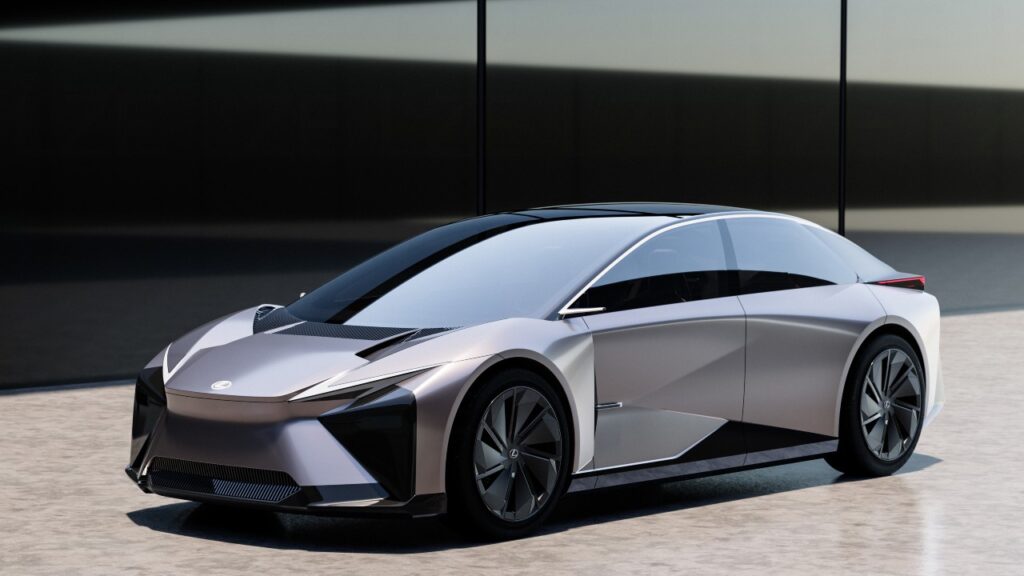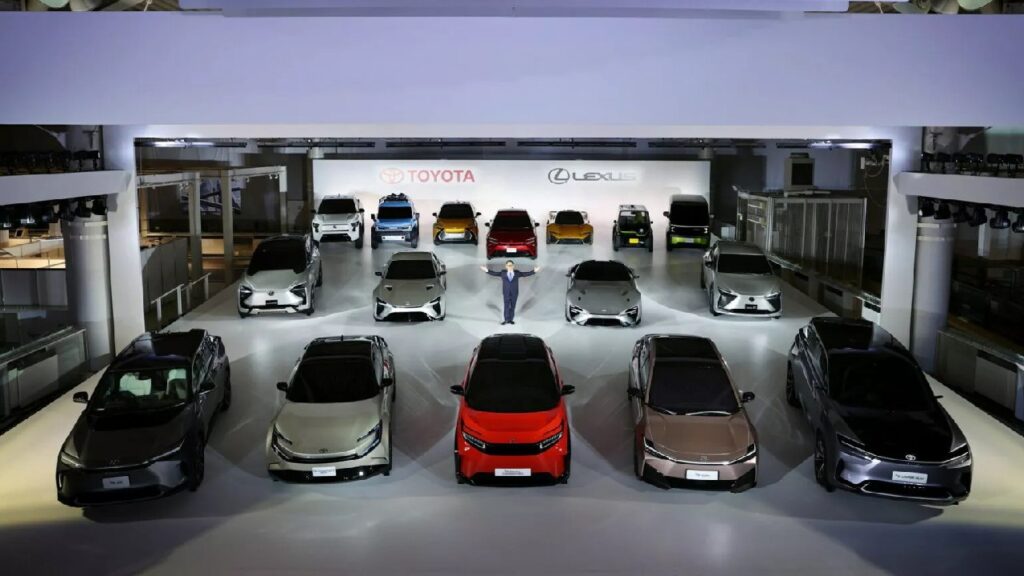The Japanese auto giant continues with its multi-energy approach to power the future of mobility
Toyota and Lexus have unveiled massive plans for the U.S. with at least 7 new EVs in the coming years. Interestingly, this also includes made-in-U.S. products along with locally sourced batteries. Looking at the market scenario at the moment, this will be of immense value going forward. Toyota has repeatedly refused to give in to the all-electric portfolio approach. Despite receiving flak for it, it believes in letting the customers choose what they want.

You might also like: Toyota Chairman Continues To Advocate For Multi-Energy Approach
Toyota And Lexus Plan 7 New EVs For The U.S.
As per a Bloomberg report, Toyota is planning 7 new fully electric cars for the American market by 2027. This incorporate the updated bZ, the new C-HR, bZ Woodland and 2 Lexus EVs – the refreshed RZ and the all-new ES sedan. These are the confirmed models. On top of that, one of the other two might well be the production iteration of the bZ Large SUV concept from back in 2021.
This means that by 2027, the buyers will get to choose between gas, hybrid, plug-in hybrid and EV alternatives. This is part of Toyota’s multi-energy approach, where it doesn’t want to force its customers to buy EVs. Instead, in fact, it will continue to offer its products in multiple avatars.
According to the report, Toyota’s Senior Vice President of Planning and Strategy, Cooper Ericksen, remarked, “In the future, we think it’s a really important segment that we don’t want to give up to the competition.” It is worth noting that 2 out of 7 EVs will be manufactured in the U.S., most likely with locally sourced batteries from Toyota’s North Carolina plant. One of these is anticipated to be the 3-row electric SUV.

You might also like: 2026 Toyota bZ4X Comes With Many New Enhancements
Learn Electric Cars Says
The Japanese car company may have started a bit late with electric vehicles, but it is clearly not ignoring them. Since it sells a large number of vehicles overall, it wants to be sure that there are enough volumes, the EV charging stations are widely available and that people are ready to switch to EVs. Along with launching new electric models, the company has also been developing solid-state battery technology. Even though it took some time to get going, it’s clear the company is carefully preparing for the future of transportation.

